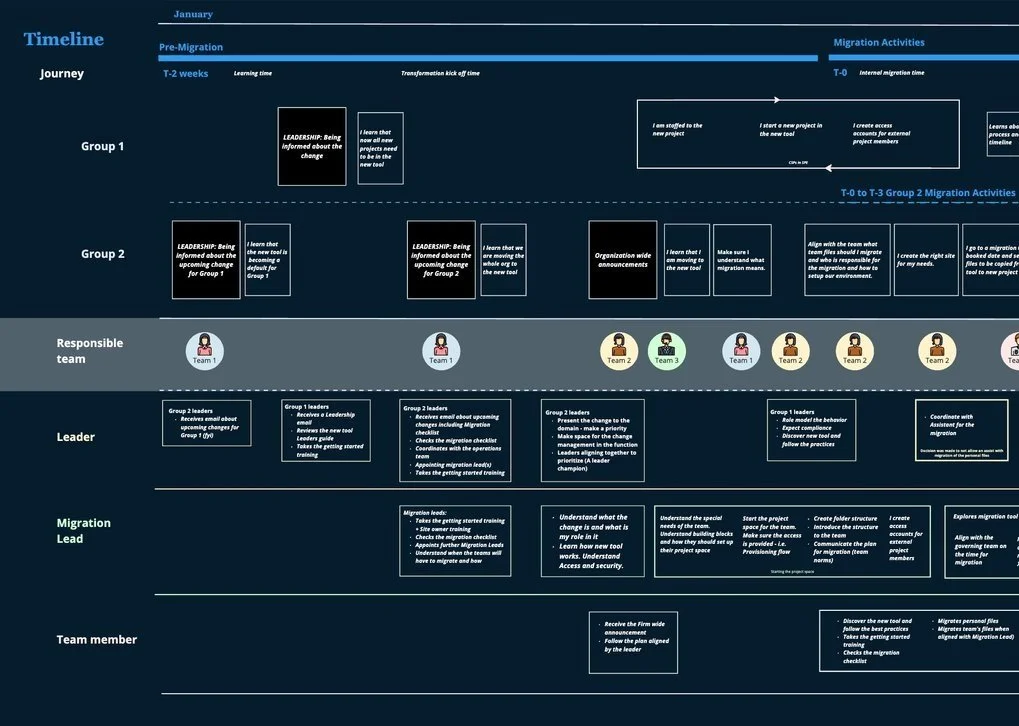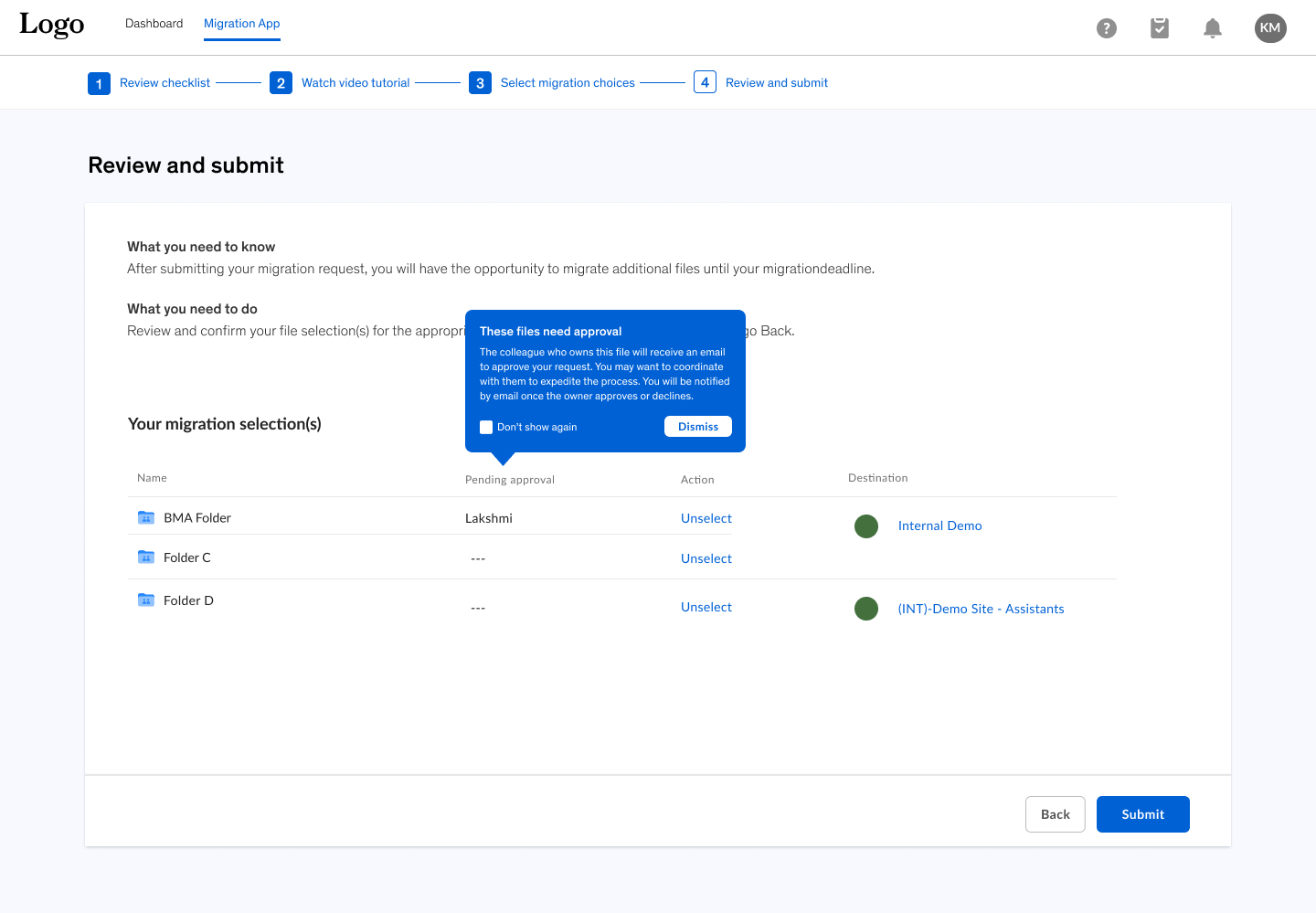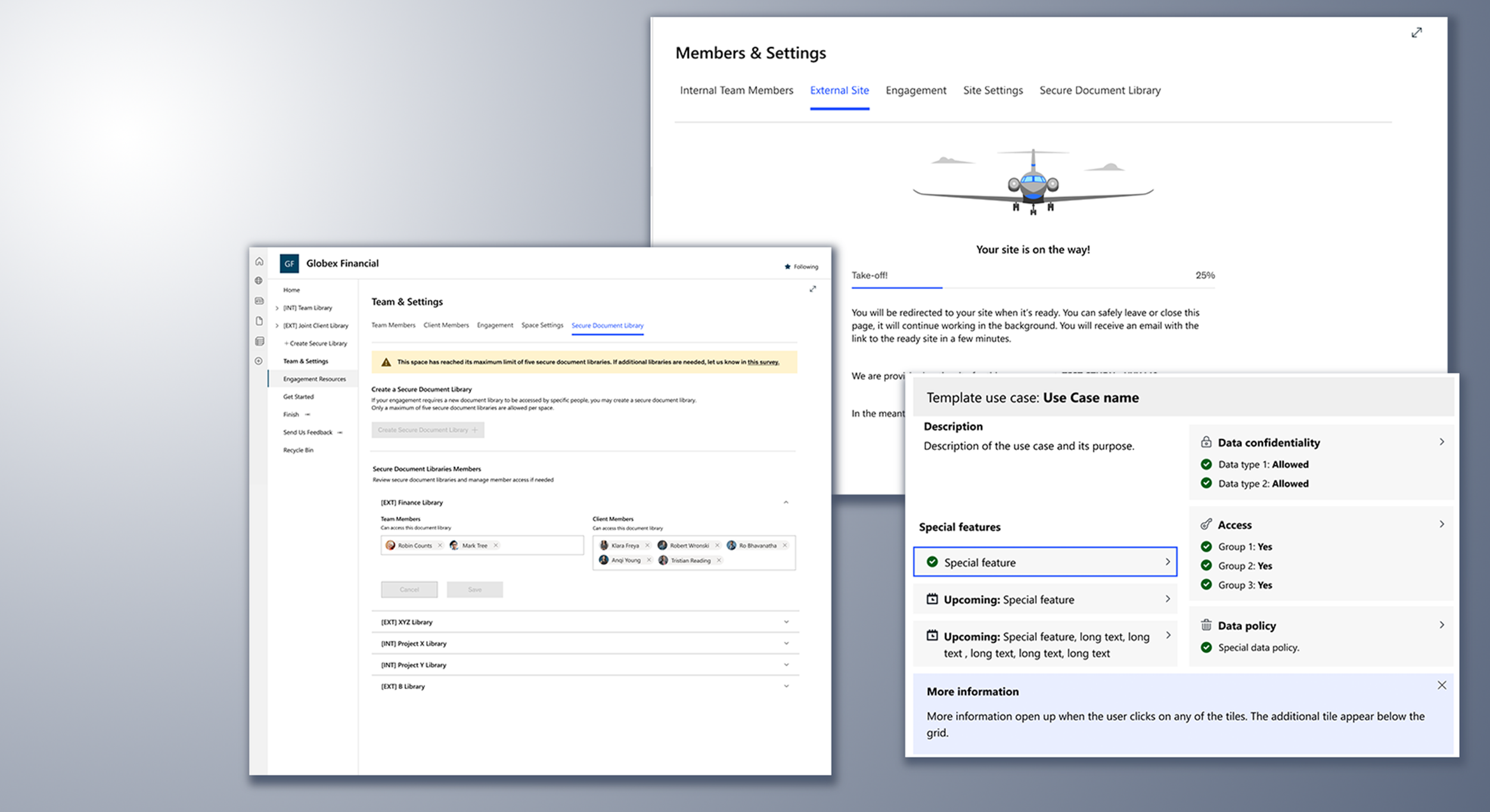Building integrations between platforms to enable visual support service line
Year: 2024 / Company: McKinsey & Company
Details and examples limited or changed to comply with the non disclosure character of the work.
Areas of expertise:
User flows, Strategic Product roadmap
Most utilized skills:
Multidisciplinary alignment, Navigating ambiguity
My role:
I was a lead designer working on designing integrations collaborating closely with each platform Product managers and engineers.
Integration of the support workflow to the new ecosystem
Part of the organization’s shift to the new enterprise collaboration platform, was working on minimizing the disruption during the dual-platform transition period.
My role was to redesign the existing visual design support service line, which was dependent on the legacy platform.
Challenge
Understating current experience revealed technological debt and unintuitive solutions in the space which required efficiency.
Existing visual design support service lines lacked formal mapping. Before redesigning the workflows I had to develop a detailed understanding of their structure. I collaborated with three separate teams, each managing different types of requests and possessing unique technological requirements.
Proprietary request tool team
1.
Request
website
team
2.
Advance
requests
team
3.
Approach
Collaboration allowed me to design integration into platforms APIs and improve the user experience by designing small changed in the integrations which created a big impact.
I worked closely with the new product’s development team and the support workflow teams to assess the feasibility, viability, and desirability, I designed the future-state workflow, ensuring a cohesive and efficient solution.
I designed the interface changes for in the integrations focusing on reducing behavioral friction for both employees and support staff.
Workflow with the proprietary request tool
Outcome
The integrations allowed continuity of the service with new platform, but also improve the efficiency by keeping users working in one place.
This intervention ensured continuity of service while accelerating full migration to the new platform.
It provided a clear guidance to developers on both the new tool product team and the support workflow product team, allowing them to build an effective integration. I expect a smooth adoption process for both customers and support professionals, as the interface changes were minimal and reduced complexity, directly addressing user requests.
Old tool required downloads, manual access control, and additional workload, which put data at risk and allowed for human error.
Before
After
The new tool seamlessly integrates into familiar processes, streamlining workflows with intuitive automation and prioritizing data security by default.








